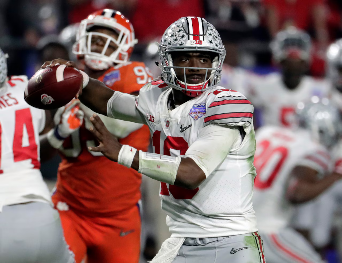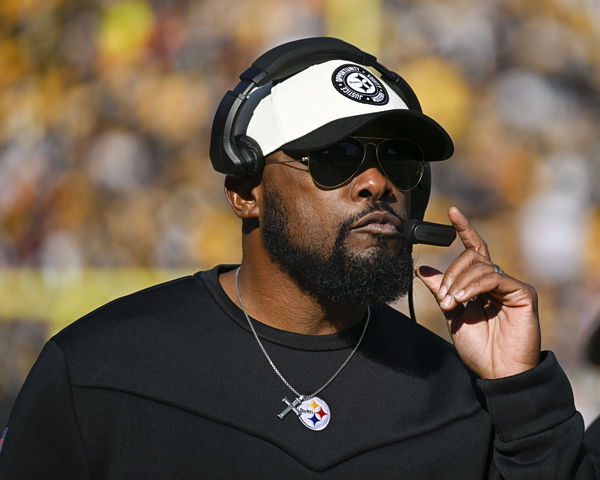
The NFL is home to some of the most talented and high-profile individuals in professional sports, but it’s not every day that a former college star transitions into a coaching role at the highest level. A former Ohio State football player is now making waves on the NFL sideline, and it’s raising eyebrows for several reasons. Some Buckeye fans are cheering for the success of their own, while others are questioning the fairness of such promotions.
In a league that prides itself on a rigorous process of hiring top-tier coaching talent, the fact that a former college player is now coaching in the NFL raises key questions: How much should college pedigree weigh in the hiring process? And does this move signal a potential trend of college programs acting as NFL talent factories?
The Rise of the Buckeye Breakfast in the NFL
Ohio State University, also known as the Buckeyes, has long been a powerhouse in college football. Over the years, Ohio State has produced a multitude of NFL stars, from quarterbacks to running backs, linemen, and defensive backs. But now, a new trend is brewing—former Buckeye players are not just becoming NFL players, but are stepping into the spotlight as coaches.
Take for example, the latest hire of a former Buckeye player now in the NFL coaching ranks. While the exact name may not be the focus for this article, what’s concerning many fans and analysts is the growing practice of promoting from within the Ohio State program. For some, it seems like a natural progression—after all, Ohio State’s football program has produced elite talent that has dominated on the college stage. So why not trust those with the “Buckeye blood” to take that experience into the NFL?
The Controversial “Buckeye Bias” in NFL Coaching
For many, this development is less about the individual and more about a growing concern regarding what some are calling “Buckeye Bias” in NFL coaching. The argument isn’t necessarily about talent or ability, but about the idea of promoting college-based loyalty over fresh perspectives from a wider pool of candidates. This trend, which could become more commonplace, is starting to raise eyebrows.
One of the chief concerns is that such promotions could lead to NFL teams becoming overly reliant on one college program, potentially creating a monopolistic advantage for schools like Ohio State. Critics argue that by promoting former Ohio State players to coaching roles, the NFL is inadvertently putting itself in a position where teams may favor Buckeye alumni—an issue that has larger implications for diversity in coaching and the overall NFL talent pool.
Some also worry that the culture of Ohio State football, while elite, could influence NFL teams in ways that limit creative thinking. Could this lead to a cookie-cutter coaching approach that values tradition over innovative coaching styles? And are NFL teams placing too much emphasis on past success in the college game, potentially ignoring more diverse coaching philosophies?
The Positive Impact: A Proven Path for Success?
On the other hand, there are plenty of supporters who believe that former Buckeyes coaching in the NFL is a net positive for the league. It’s hard to ignore Ohio State’s proven track record in producing elite athletes and high-caliber coaches. Fans of the program argue that the discipline, work ethic, and high standards fostered in the Buckeye system translate well to professional football.
Moreover, Ohio State has an extensive network of former players who already have valuable insight into the mindset of elite players. These former players are uniquely positioned to connect with current NFL players, understanding the competitive pressures and expectations at the highest level of the game. This personal connection and credibility could translate to successful coaching.
By hiring within a specific program like Ohio State, NFL teams may also be benefiting from a streamlined, well-organized system that emphasizes teamwork, attention to detail, and an uncompromising commitment to success—values that make excellent coaches. It’s a natural fit, some say, for former players who understand the culture and expectations within Ohio State’s football ecosystem.
Is Ohio State’s Football Legacy Becoming a “Coaching Factory”?
Whether you love or hate it, there’s no denying that Ohio State’s football legacy is increasingly seen as a training ground for NFL talent, both on the field and now, on the sideline. And with the rising number of former Buckeye players stepping into coaching roles, it’s worth asking: Is Ohio State becoming the “coaching factory” of the NFL?
While there’s no easy answer, what’s clear is that the conversation around former Ohio State football players becoming NFL coaches is more nuanced than simply a success story. It speaks to larger questions about college football’s role in shaping professional football’s future—and what happens when certain programs begin to dominate the coaching landscape.
As more former Buckeye players make their mark in the NFL coaching world, the next logical question is whether this will become a trend that shapes the future of the NFL’s leadership. Are we witnessing the rise of a dominant college program that will continue to influence the league’s success for years to come? Or will the NFL ultimately look beyond the Buckeye legacy for the next wave of coaching talent?
Conclusion
The rise of a former Ohio State football player as an NFL coach is more than just a personal triumph—it’s a sign of the times in the world of football. Whether you see it as a positive sign of Buckeye pride and excellence, or as the beginning of a concerning trend that could impact NFL diversity and coaching philosophies, one thing is clear: this Buckeye breakfast is definitely getting fans talking.
As the NFL continues to evolve, we’ll be watching closely to see whether Ohio State alumni will continue to rise to the top, and if their dominance in the coaching ranks will shape the future of the league in ways we haven’t even considered yet.







